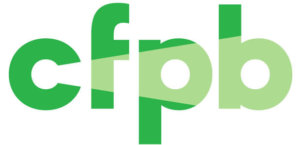Jan. 13: CFPB Updates This Week
 PUBLISHED
PUBLISHED
Companies can use terms and conditions in non-negotiable form contracts to try to hide consumer harm, to stifle criticism about products and services, and to undermine consumer financial protection law
The CFPB proposed a rule to establish a public registry of supervised nonbanks’ terms and conditions in “take it or leave it” form contracts that claim to waive or limit consumer rights and protections, like bankruptcy rights, liability amounts, or complaint rights. In some cases, terms and conditions in non-negotiable form contracts mislead consumers into believing the terms or conditions are legally enforceable. Under the proposed rule, nonbanks subject to the CFPB’s supervisory jurisdiction would need to submit information on terms and conditions in form contracts they use that seek to waive or limit individuals’ rights and other legal protections. That information would be posted in a registry that will be open to the public, including to other consumer financial protection enforcers.
CFPB Takes Action to Halt Debt Collection Mill From Bombarding Consumers with Junk Lawsuits
Forster & Garbus illegally sued borrowers on behalf of Citibank and Discover, among others
The CFPB has reached a settlement in its lawsuit against law firm Forster & Garbus, LLP for illegal debt-collection practices. If approved by the court, the proposed settlement would prohibit Forster & Garbus from filing any new lawsuit against a consumer unless it has specific documents supporting the debt and certifies that an attorney reviewed those documents. The order would also require the company to dismiss any pending lawsuit where it cannot satisfy these requirements. Forster & Garbus would also be required to pay a penalty of $100,000, which would be deposited into the CFPB’s victims relief fund.
Blog: Protecting People’s Access to Their Money
History has made it clear that when companies don’t have to compete for business, there is a risk that they’ll take unfair advantage of the situation. When the COVID-19 pandemic hit in early 2020, Congress and many states and localities provided additional unemployment assistance and other benefits. The Consumer Financial Protection Bureau (CFPB) found that many companies took advantage of the limited choices that people have for accessing public benefits like unemployment assistance. Some banks may have unlawfully seized this money to satisfy negative account balances or pay entirely different debts. And one institution automatically and unlawfully froze people’s accounts with a faulty fraud detection program, and then gave them little recourse when there was, in fact, no fraud. In 2022, the CFPB reported a 673% increase in consumer complaints about government-benefit prepaid cards , in large part due to government programs that distribute funds to consumers through such cards. In fact, of all types of prepaid cards, the CFPB receives the most complaints about government-benefit prepaid cards.